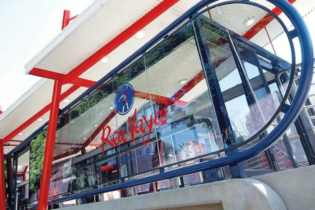Swaziland’s public transport workers’ union will block all imports from South Africa for 11 days from May 29 as part of a nationwide strike called by unions to press the government on tax and other concessions.
“Our intention is to shut down Swaziland until our demands are met,” the Swaziland Transport and Allied Workers Union (Stawu) said. The union represents public transport workers and is aligned with unions representing workers at large road freight firms such as Unitrans and Cargo Carriers. “Every drop of petroleum used in Swaziland is trucked in from South Africa. We will shut that spigot. Swaziland will come to a standstill,” said unionist Sipho Dwindle. Most goods used in Swaziland’s retail and food businesses are brought in by road. Rail in Swaziland is reserved for minerals and industrial inputs, and air freight traffic is non-existent at the country’s one small airport, 35km from Mbabane. Stawu strike organisers will seek support from nurses, teachers and other unions to make the protest national. The transport union has given the Ministry of Public Works and Transport seven days to concede to a list of demands. Some demands are business related, such as a call to expedite the issuance of transport licences and the closure of a satellite bus rank in the transportation hub city of Manzini. But a key demand is the rollback of VAT, which was introduced last month. Swaziland’s economy was in decline prior to the global recession, and its gross domestic product growth – now below 2 percent – has failed to recover in the recession’s aftermath.Two-thirds of Swazis live in poverty. Unemployment is at 40 percent. And Swaziland’s HIV/Aids and tuberculosis rates are the world’s highest.
Frantic to meet its public payroll to avoid civil unrest, the government has cut social services. Grants to the elderly were suspended last year. “Introducing VAT at a time of a recession is the opposite of the… stimulation the economy needs. It complicates business and strains workers who’ve seen prices rise but no hope of increased wages. Paying more for less, consumers are buying less, and retailers operating on the margins may be forced to close, increasing unemployment,” said Maxwell Dlamini, an Mbabane economist. Government spokesman Percy Simelane said VAT was non-negotiable. He said tax policy would not be swayed by street demonstrations. The introduction of VAT was recommended by the International Monetary Fund (IMF) as a way for Swaziland’s spendthrift government to raise revenue. But other IMF recommendations, such as curtailing wasteful spending and trimming the size of Africa’s largest government workforce per capita, were ignored. IMF advisers left Swaziland last week, saying they would not return as the government was not implementing fiscal reform. Without an IMF recommendation, Swaziland cannot get loans from the African Development Bank or the World Bank. A R2.4 billion loan offered to King Mswati III by South African President Jacob Zuma was contingent on Swaziland’s adherence to IMF guidance. Government security forces used force to counter a transport strike last year, as riot police stormed the Manzini bus rank with teargas and rubber bullets. Stawu officials told members to expect further shows of force. The union will stage transport stoppages to show the seriousness of its intentions prior to the month-end national strike. Source: http://www.iol.co.za





